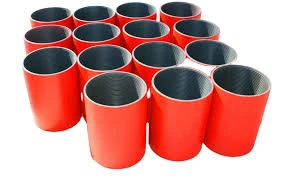- Afrikaans
- Albanian
- Amharic
- Arabic
- Armenian
- Azerbaijani
- Basque
- Belarusian
- Bengali
- Bosnian
- Bulgarian
- Catalan
- Cebuano
- Corsican
- Croatian
- Czech
- Danish
- Dutch
- English
- Esperanto
- Estonian
- Finnish
- French
- Frisian
- Galician
- Georgian
- German
- Greek
- Gujarati
- Haitian Creole
- hausa
- hawaiian
- Hebrew
- Hindi
- Miao
- Hungarian
- Icelandic
- igbo
- Indonesian
- irish
- Italian
- Japanese
- Javanese
- Kannada
- kazakh
- Khmer
- Rwandese
- Korean
- Kurdish
- Kyrgyz
- Lao
- Latin
- Latvian
- Lithuanian
- Luxembourgish
- Macedonian
- Malgashi
- Malay
- Malayalam
- Maltese
- Maori
- Marathi
- Mongolian
- Myanmar
- Nepali
- Norwegian
- Norwegian
- Occitan
- Pashto
- Persian
- Polish
- Portuguese
- Punjabi
- Romanian
- Russian
- Samoan
- Scottish Gaelic
- Serbian
- Sesotho
- Shona
- Sindhi
- Sinhala
- Slovak
- Slovenian
- Somali
- Spanish
- Sundanese
- Swahili
- Swedish
- Tagalog
- Tajik
- Tamil
- Tatar
- Telugu
- Thai
- Turkish
- Turkmen
- Ukrainian
- Urdu
- Uighur
- Uzbek
- Vietnamese
- Welsh
- Bantu
- Yiddish
- Yoruba
- Zulu
China's Production of Finished Casing Couplings for Oil and Gas Industry
The Importance of Finished Casing Couplings in China’s Oil and Gas Industry
Finished casing couplings are critical components in the oil and gas industry, particularly in drilling operations. In China, where the energy sector plays a vital role in the national economy, the production and utilization of high-quality finished casing couplings have become increasingly significant. These couplings serve as connectors that link segments of casing tubing, ensuring the structural integrity and safety of drilling operations. As China's energy demand continues to grow, the significance of these components cannot be overstated.
Understanding Finished Casing Couplings
Finished casing couplings are designed to facilitate the assembly of casing pipes that are employed in well construction. These couplings are typically made from high-strength steel, precision-engineered to withstand the harsh conditions encountered during drilling, including high pressures and extreme temperatures. Moreover, the design typically includes features that allow for easy assembly and disassembly, enhancing operational efficiency and reducing downtime.
In terms of functionality, casing couplings serve multiple roles. They not only help to stabilize the casing string but also provide a barrier against the migration of fluids between geological formations. This is crucial in preventing contamination of freshwater aquifers and ensuring the integrity of the well structure. As such, the quality and reliability of finished casing couplings are paramount to the success of drilling operations.
The Demand for High-Quality Products
The growing demand for energy in China has led to an increase in investments in the oil and gas sector. This, in turn, has spurred the need for high-quality drilling equipment and components, including finished casing couplings. Chinese oil and gas companies are under pressure to enhance their operational efficiency while ensuring safety and compliance with international standards.
To meet these demands, manufacturers of finished casing couplings in China have been investing heavily in advanced manufacturing technologies. Implementing rigorous quality control measures and adhering to international safety standards are essential steps that ensure the production of reliable coupling products. The continuous improvement in manufacturing processes has not only enhanced the quality of finished casing couplings but also positioned Chinese manufacturers competitively in the global market.
china finished casing coupling

Environmental Considerations and Innovations
In recent years, environmental concerns have become increasingly prominent within the oil and gas industry. As such, manufacturers are innovating to produce more environmentally friendly finished casing couplings. This involves using steel that is recycled or derived from sustainable sources, as well as developing couplings that minimize the potential for leaks and other environmental hazards.
The drive for sustainability is also leading to advancements in the design and functionality of casing couplings. For example, innovations such as corrosion-resistant coatings and advanced sealing technologies are becoming more prevalent. These advancements not only enhance the longevity and reliability of the couplings but also contribute to reducing the overall environmental impact of drilling operations.
The Role of Research and Development
Research and development (R&D) play a crucial role in the evolution of finished casing couplings. Chinese companies are increasingly collaborating with universities and research institutions to develop new materials and designs that can better withstand the challenges of modern drilling environments. These partnerships are vital for driving innovation and ensuring that the industry remains at the forefront of technology and safety standards.
Moreover, R&D initiatives are focused on optimizing the performance of finished casing couplings to cope with deeper and more complex drilling scenarios. With the exploration of unconventional oil and gas resources, such as shale gas, the demands on casing systems are ever-increasing. Enhanced coupling designs can lead to more efficient operations, thereby reducing costs and minimizing risks associated with drilling.
Conclusion
Finished casing couplings are indispensable in the Chinese oil and gas industry, directly impacting the efficacy and safety of drilling operations. As energy demands escalate, the importance of high-quality manufacturing and innovation in this sector becomes clearer. By prioritizing quality, sustainability, and research collaboration, Chinese manufacturers are poised to not only meet domestic needs but also compete effectively on the global stage. The future of finished casing couplings in China, therefore, looks promising and essential for the continued growth of the energy sector.
-
Tubing Pup Joints: Essential Components for Oil and Gas OperationsNewsJul.10,2025
-
Pup Joints: Essential Components for Reliable Drilling OperationsNewsJul.10,2025
-
Pipe Couplings: Connecting Your World EfficientlyNewsJul.10,2025
-
Mastering Oilfield Operations with Quality Tubing and CasingNewsJul.10,2025
-
High-Quality Casing Couplings for Every NeedNewsJul.10,2025
-
Boost Your Drilling Efficiency with Premium Crossover Tools & Seating NipplesNewsJul.10,2025







